Search
Search Results
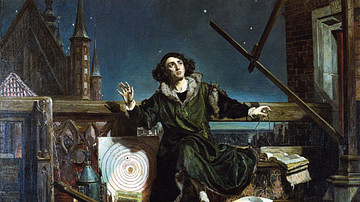
Definition
Nicolaus Copernicus
Nicolaus Copernicus (1473-1543 CE) was a Polish astronomer who famously proposed that the Earth and other planets revolved around the Sun in a heliocentric system and not, as then widely thought, in a geocentric system where the Earth is...

Definition
Voltaire
Voltaire (1694-1778) was a French author, historian, and philosopher whose thoughts on religious toleration and moderation of authoritarian power were influential during the Enlightenment. His most famous work today is the satirical Candide...
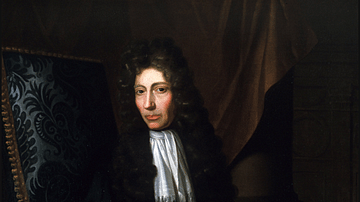
Definition
Robert Boyle
Robert Boyle (1627-1691) was an Anglo-Irish chemist, physicist, and experimental philosopher. Boyle was a prolific author, made significant experiments with air pumps, and presented the first litmus test. A founding member of the Royal Society...
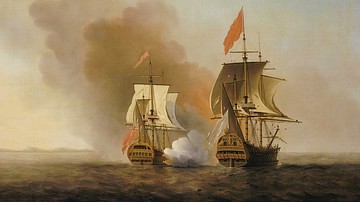
Definition
Galleon
The galleon (Spanish: galeón, French: galion) was a type of sailing ship used for both cargo carrying and as a warship. Galleons dominated the seas in the second half of the 16th century, and with their lower superstructures, they were much...

Definition
Pliny the Younger
Pliny the Younger (61-112 CE) was the nephew of Pliny the Elder (23-79 CE), the author of the 37-volume Natural History. He had a remarkable political career and gained a reputation as an excellent lawyer and orator, but he is most famous...
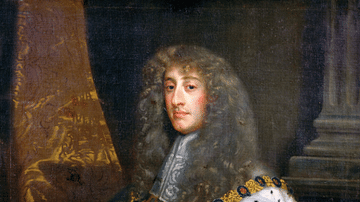
Definition
James II of England
James II of England (r. 1685-1688) reigned briefly as the king of England, Scotland, and Ireland until he was deposed by the Glorious Revolution of November 1688. James, also known as James VII of Scotland, was the fourth Stuart monarch...
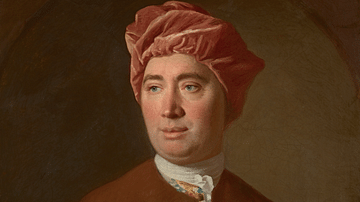
Definition
David Hume
David Hume (1711-1776) was a Scottish philosopher, writer, historian, and important figure in the Enlightenment. Hume presented a positive view of human nature but a sceptical view of religion's usefulness. His Treatise of Human Nature was...
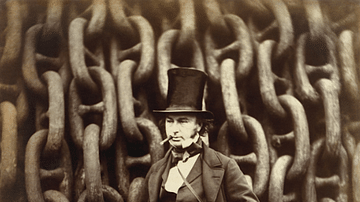
Definition
Isambard Kingdom Brunel
Isambard Kingdom Brunel (1806-1859) was a British engineer and a key figure of the British Industrial Revolution (1760-1840). Brunel masterminded the Great Western Railway from London to Bristol, designed and built innovative giant steamships...

Definition
Gospel of John
In the canon of the New Testament, the fourth gospel of John is uniquely different from the other three, known as the Synoptics ("seen together"). Mark, Matthew, and Luke have parallel ministries and methods of relating the story of Jesus...
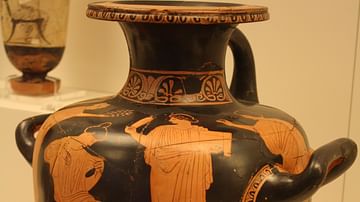
Definition
Lysistrata
Lysistrata was the third and final of the peace plays written by the great Greek comic playwright Aristophanes (c. 445 - c. 386 BCE). Shown in 411 BCE at the Lenaea festival in Athens, it was written during the final years of the war between...